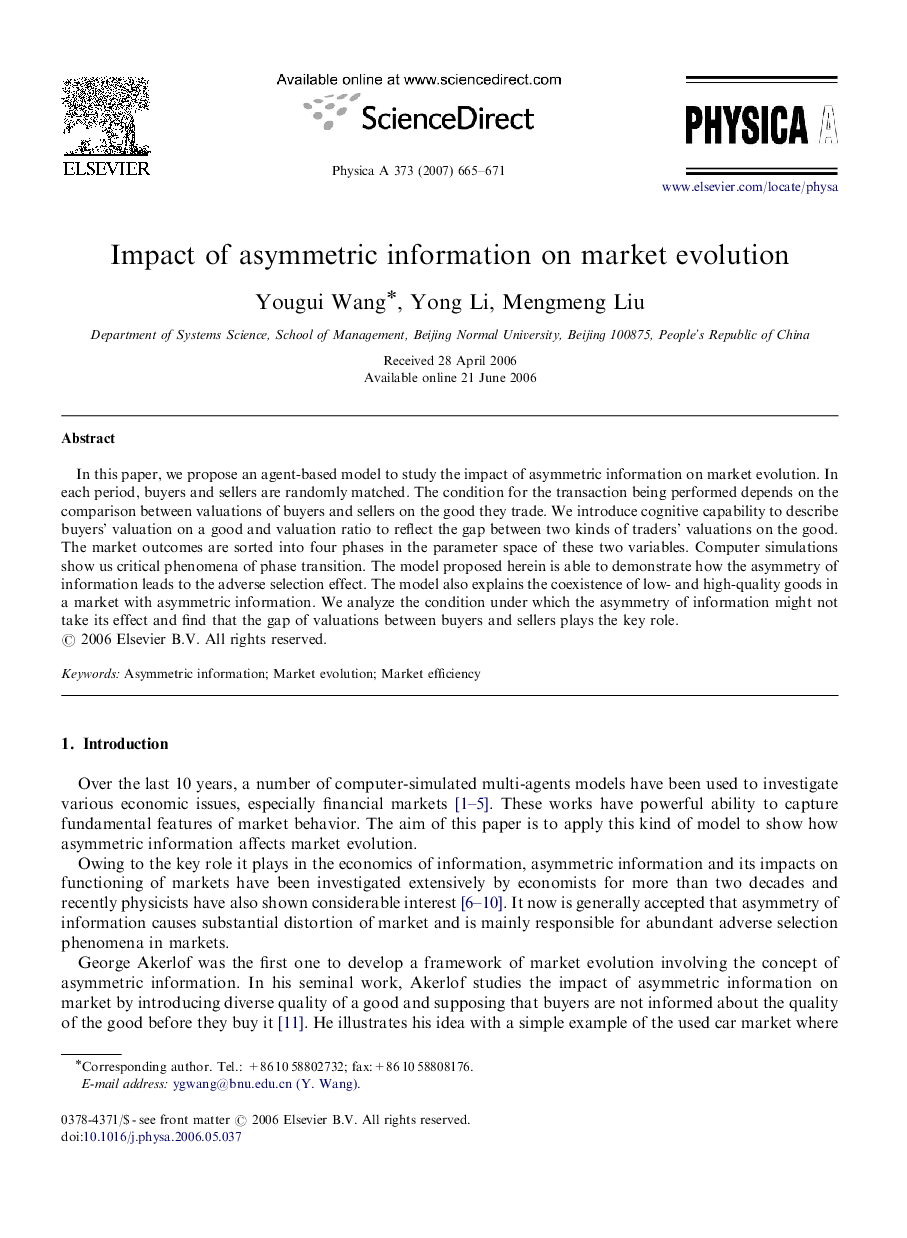| Article ID | Journal | Published Year | Pages | File Type |
|---|---|---|---|---|
| 978381 | Physica A: Statistical Mechanics and its Applications | 2007 | 7 Pages |
In this paper, we propose an agent-based model to study the impact of asymmetric information on market evolution. In each period, buyers and sellers are randomly matched. The condition for the transaction being performed depends on the comparison between valuations of buyers and sellers on the good they trade. We introduce cognitive capability to describe buyers’ valuation on a good and valuation ratio to reflect the gap between two kinds of traders’ valuations on the good. The market outcomes are sorted into four phases in the parameter space of these two variables. Computer simulations show us critical phenomena of phase transition. The model proposed herein is able to demonstrate how the asymmetry of information leads to the adverse selection effect. The model also explains the coexistence of low- and high-quality goods in a market with asymmetric information. We analyze the condition under which the asymmetry of information might not take its effect and find that the gap of valuations between buyers and sellers plays the key role.
